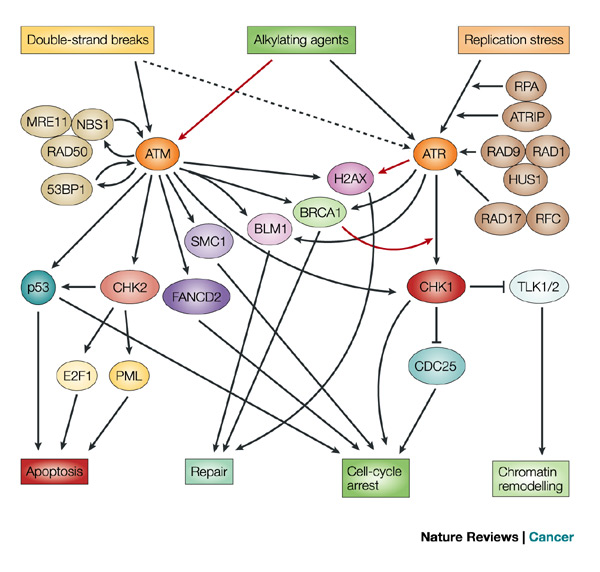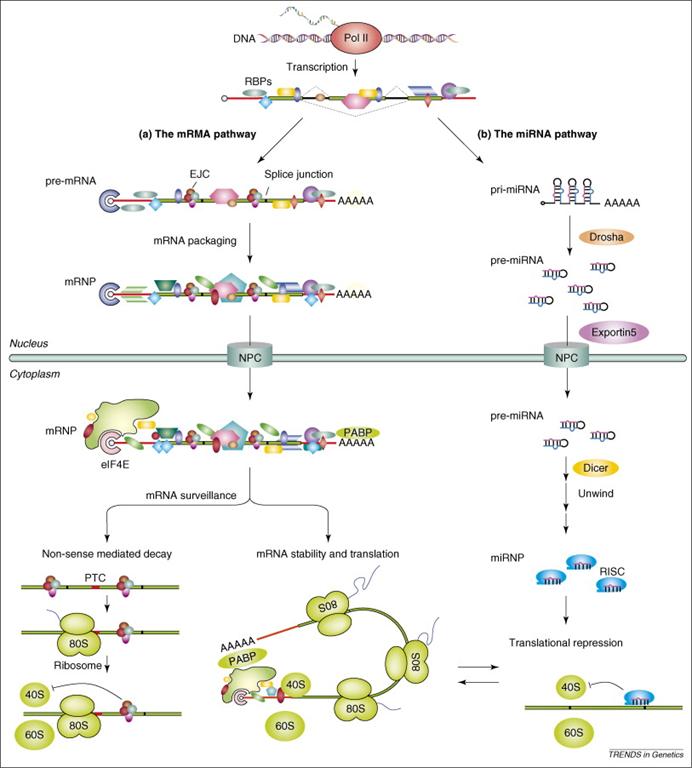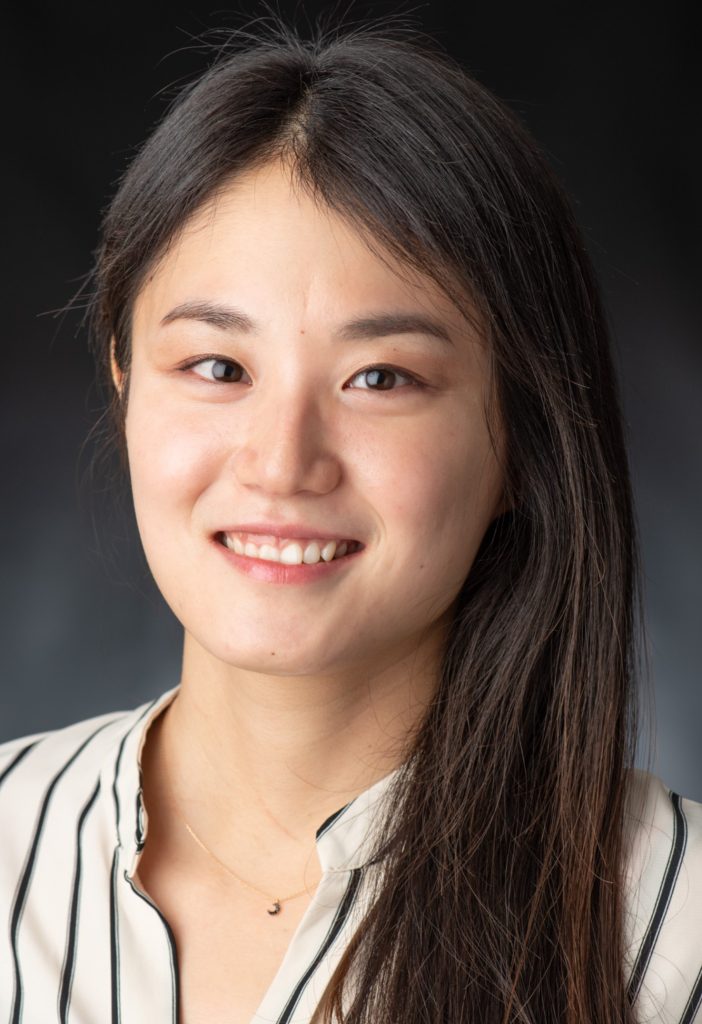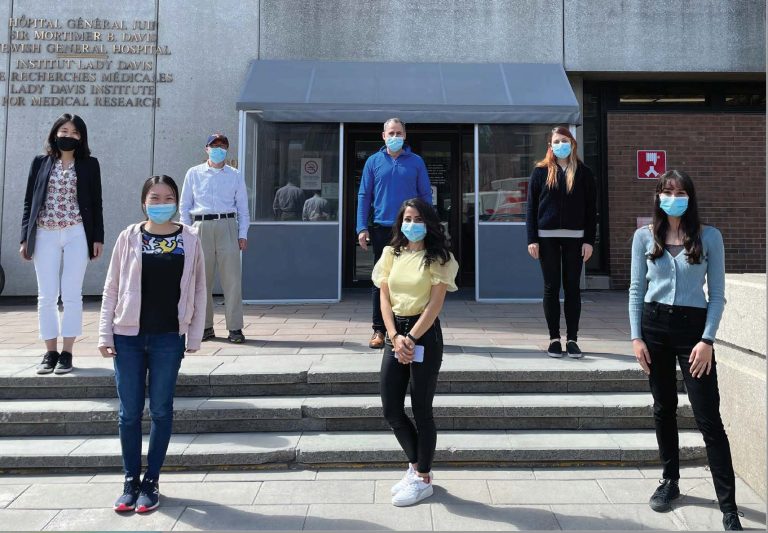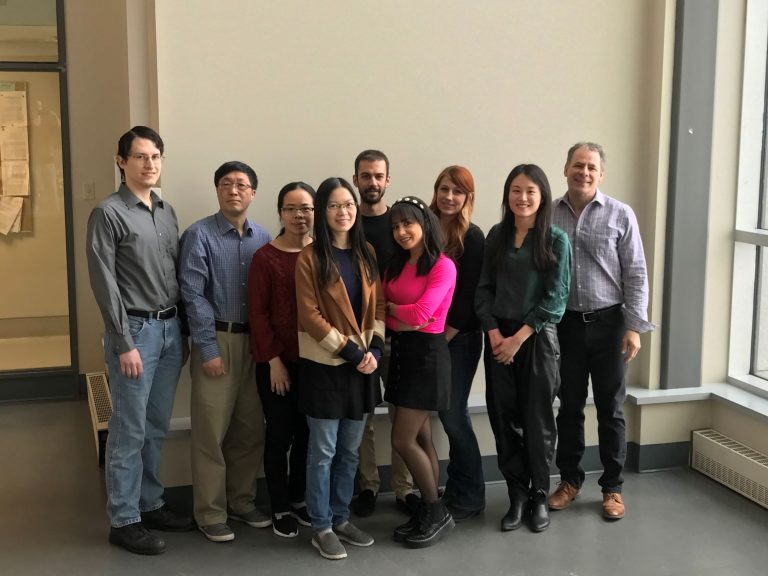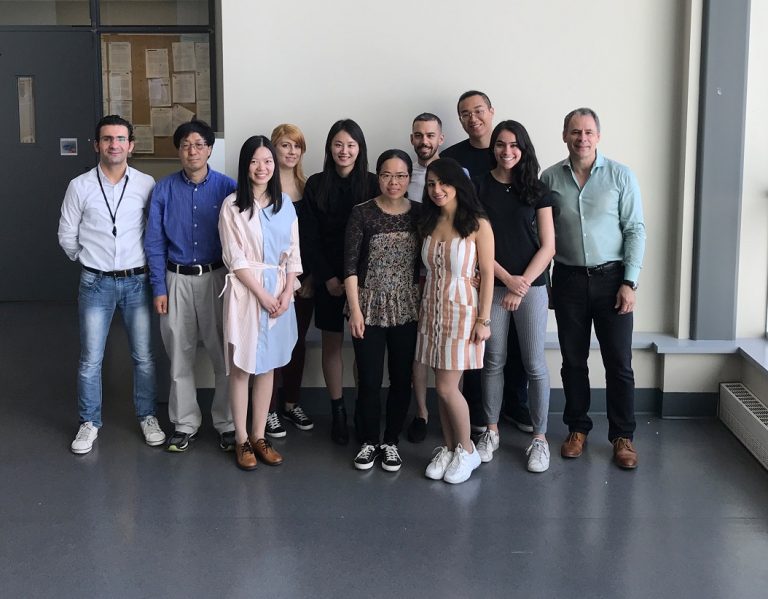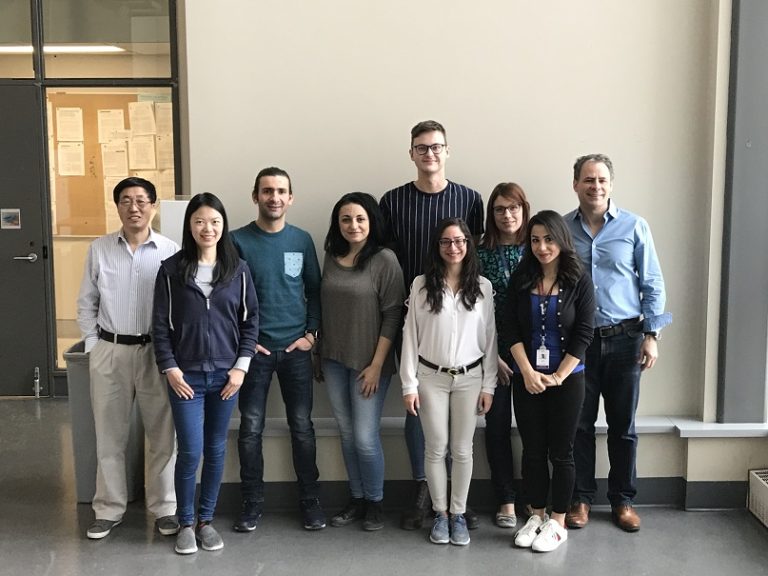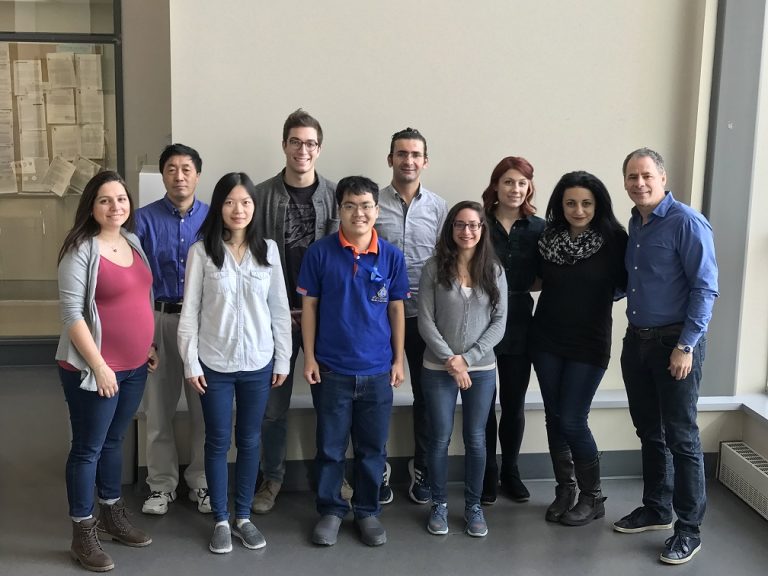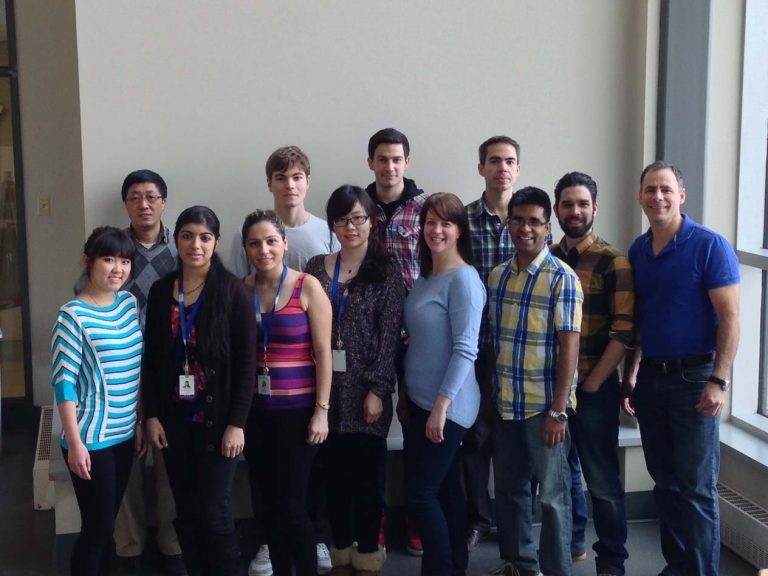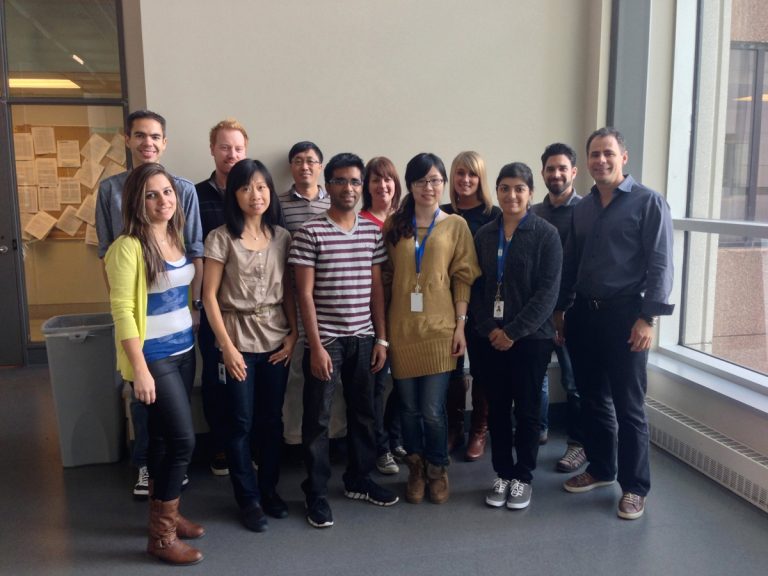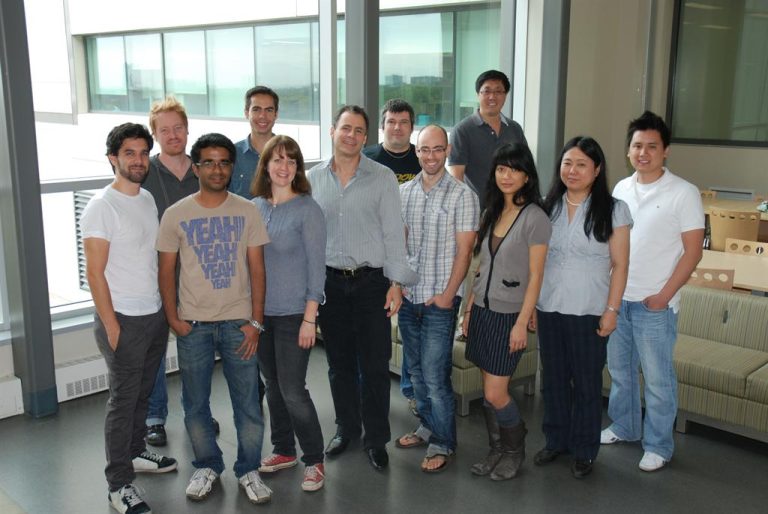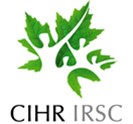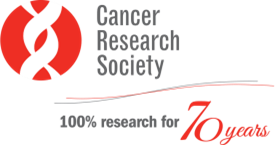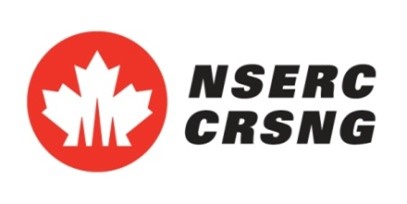On-Treatment Levels and Dynamic Changes of Genomic Instability in Circulating Tumor DNA Predict Response to Treatment and Outcome in Metastatic Breast Cancer Patients.
Aguilar-Mahecha A, Lafleur J, Brousse S, Savichtcheva O, Holden KA, Faulkner N, McLennan G, Jensen TJ, Basik M. Early, Cancers (Basel). 2021 Mar 16;13(6):1331.
Prognostic and predictive value of circulating tumor DNA during neoadjuvant chemotherapy for triple negative breast cancer.
Cavallone L, Aguilar-Mahecha A, Lafleur J, Brousse S, Aldamry M, Roseshter T, Lan C, Alirezaie N, Bareke E, Majewski J, Ferrario C, Hassan S, Discepola F, Seguin C, Mihalcioiu C, Marcus EA, Robidoux A, Roy JA, Pelmus M, Basik M. Sci Rep. 2020 Sep 7;10(1):14704.
A Unique Morphological Phenotype in Chemoresistant Triple-Negative Breast Cancer Reveals Metabolic Reprogramming and PLIN4 Expression as a Molecular Vulnerability.
Sirois I, Aguilar-Mahecha A, Lafleur J, Fowler E, Vu V, Scriver M, Buchanan M, Chabot C, Ramanathan A, Balachandran B, Légaré S, Przybytkowski E, Lan C, Krzemien U, Cavallone L, Aleynikova O, Ferrario C, Guilbert MC, Benlimame N, Saad A, Alaoui-Jamali M, Saragovi HU, Josephy S, O’Flanagan C, Hursting SD, Richard VR, Zahedi RP, Borchers CH, Bareke E, Nabavi S, Tonellato P, Roy JA, Robidoux A, Marcus EA, Mihalcioiu C, Majewski J, Basik M. Mol Cancer Res. 2019 Dec;17(12):2492-2507.
Metastatic breast carcinoma-associated fibroblasts have enhanced pro-tumorigenic properties related to increased IGF2 expression.
Gui Y, Aguilar-Mahecha A, Krzemien U, Hosein A, Buchanan M, Lafleur J, Pollak MN, Ferrario C, Basik M. Clin Cancer Res. 2019 Dec 1;25(23):7229-7242. doi: 10.1158/1078-0432.CCR-19-1268. PMID:31515454.
Precision Medicine Tools to Guide Therapy and Monitor Response to Treatment in a HER-2+ Gastric Cancer Patient: Case Report.
Aguilar-Mahecha A, Joseph S, Cavallone L, Buchanan M, Krzemien U, Batist G, Basik M. Front Oncol. 2019 Aug 6;9:698.
An integrated stress response via PKR suppresses HER2+ cancers and improves trastuzumab therapy.
Darini C, Ghaddar N, Chabot C, Assaker G, Sabri S, Wang S, Krishnamoorthy J, Buchanan M, Aguilar-Mahecha A, Abdulkarim B, Deschenes J, Torres J, Ursini-Siegel J, Basik M, Koromilas AE. Nat Commun. 2019 May 13;10(1):2139.
A study of pre-analytical variables and optimization of extraction method for circulating tumor DNA measurements by digital droplet PCR.
Cavallone L, Al-Damry M, Lafleur J, Lan C, Gonzalez-Ginestet P, Aguilar-Mahecha A, Basik M. Cancer Epidemiol Biomarkers Prev. 2019 Mar 1. doi: 10.1158/1055-9965.EPI-18-0586. [Epub ahead of print]PMID: 30824523.
The identification of challenges in tissue collection for biomarker studies: the Q-CROC-03 neoadjuvant breast cancer translational trial experience.
Aguilar-Mahecha A, Lafleur J, Pelmus M, Seguin C, Lan C, Discepola F, Kovacina B, Christodoulopoulos R, Salvucci O, Mihalcioiu C, Roy JA, Robidoux A, Marcus EA, Batist G, Basik M. Mod Pathol. 2017 Jul 28. doi: 10.1038/modpathol.2017.82. [Epub ahead of print].
SPEN, a new player in primary cilia formation and cell migration in breast cancer.
Légaré S, Chabot C, Basik M. Breast Cancer Res. 2017 Sep 6;19(1):104.
Targeted error-suppressed quantification of circulating tumor DNA using semi-degenerate barcoded adapters and biotinylated baits.
Alcaide M, Yu S, Davidson J, Albuquerque M, Bushell K, Fornika D, Arthur S, Grande BM, McNamara S, Tertre MCD, Batist G, Huntsman DG, Cavallone L, Aguilar A, Basik M, Johnson NA, Deyell RJ, Rassekh SR, Morin RD.
Sci Rep. 2017 Sep 5;7(1):10574.
Immuno-Matrix-Assisted Laser Desorption/Ionization Assays for Quantifying AKT1 and AKT2 in Breast and Colorectal Cancer Cell Lines and Tumors.
Popp R, Li H, LeBlanc A, Mohammed Y, Aguilar-Mahecha A, Chambers AG, Lan C, Poetz O, Basik M, Batist G, Borchers CH. Anal Chem. 2017 Oct 3;89(19):10592-10600.
Nonoperative Management for Invasive Breast Cancer After Neoadjuvant Systemic Therapy: Conceptual Basis and Fundamental International Feasibility Clinical Trials. Kuerer HM, Vrancken Peeters MTFD, Rea DW, Basik M, De Los Santos J, Heil J. Ann Surg Oncol. 2017 Aug 1.
The identification of challenges in tissue collection for biomarker studies: the Q-CROC-03 neoadjuvant breast cancer translational trial experience.
Aguilar-Mahecha A, Lafleur J, Pelmus M, Seguin C, Lan C, Discepola F, Kovacina B, Christodoulopoulos R, Salvucci O, Mihalcioiu C, Roy JA, Robidoux A, Marcus EA, Batist G, Basik M. Mod Pathol. 2017 Jul 28. doi: 10.1038/modpathol.2017.82.
Inhibition of EGFR, HER2, and HER3 signaling with AZD8931 in combination with anastrozole as an anticancer approach: Phase II randomized study in women with endocrine-therapy-naïve advanced breast cancer.
Johnston S, Basik M, Hegg R, Lausoontornsiri W, Grzeda L, Clemons M, Dreosti L, Mann H, Stuart M, Cristofanilli M. Breast Cancer Res Treat. 2016 Nov;160(1):91-99.
Minireview: The Link Between ERα Corepressors and Histone Deacetylases in Tamoxifen Resistance in Breast Cancer.
Légaré S, Basik M. Mol Endocrinol. 2016 Sep;30(9):965-76. doi: 10.1210/me.2016-1072.
PDK1-Dependent Metabolic Reprogramming Dictates Metastatic Potential in Breast Cancer. Dupuy F, Tabariès S, Andrzejewski S, Dong Z, Blagih J, Annis MG, Omeroglu A, Gao D, Leung S, Amir E, Clemons M, Aguilar-Mahecha A, Basik M, Vincent EE, St-Pierre J, Jones RG, Siegel PM. Cell Metab. 2015 Oct 6;22(4):577-89. doi: 10.1016/j.cmet.2015.08.007.
The Estrogen Receptor Cofactor SPEN Functions as a Tumor Suppressor and Candidate Biomarker of Drug Responsiveness in Hormone-Dependent Breast Cancers.
Légaré S, Cavallone L, Mamo A, Chabot C, Sirois I, Magliocco A, Klimowicz A, Tonin PN, Buchanan M, Keilty D, Hassan S, Laperrière D, Mader S, Aleynikova O, Basik M. Cancer Res. 2015 Oct 15;75(20):4351-63. doi: 10.1158/0008-5472.CAN-14-3475.
A functional in vitro model of heterotypic interactions reveals a role for interferon-positive carcinoma associated fibroblasts in breast cancer.
Hosein AN, Livingstone J, Buchanan M, Reid JF, Hallett M, Basik M. BMC Cancer. 2015 Mar 15;15:130. doi: 10.1186/s12885-015-1117-0.
Glycoproteomic comparison of clinical triple-negative and luminal breast tumors.
Hill JJ, Tremblay TL, Fauteux F, Li J, Wang E, Aguilar-Mahecha A, Basik M, O’Connor-McCourt M. J Proteome Res. 2015 Mar 6;14(3):1376-88. doi: 10.1021/pr500987r.
Sentinel node biopsy after neoadjuvant chemotherapy in biopsy-proven node-positive breast cancer: the SN FNAC study.
Boileau JF, Poirier B, Basik M, Holloway CM, Gaboury L, Sideris L, Meterissian S, Arnaout A, Brackstone M, McCready DR, Karp SE, Trop I, Lisbona A, Wright FC, Younan RJ, Provencher L, Patocskai E, Omeroglu A, Robidoux A. J Clin Oncol. 2015 Jan 20;33(3):258-64. doi: 10.1200/JCO.2014.55.7827. Epub 2014 Dec 1.
Chromosome-breakage genomic instability and chromothripsis in breast cancer.
Przybytkowski E, Lenkiewicz E, Barrett MT, Klein K, Nabavi S, Greenwood CM, Basik M. BMC Genomics. 2014 Jul 9;15:579. doi: 10.1186/1471-2164-15-579.
Testing devices or experimental systems? Cancer clinical trials take the genomic turn.
Nelson NC, Keating P, Cambrosio A, Aguilar-Mahecha A, Basik M. Soc Sci Med. 2014 Jun;111:74-83. doi: 10.1016/j.socscimed.2014.04.008.
Imiquimod in the treatment of breast cancer skin metastasis.
Henriques L, Palumbo M, Guay MP, Bahoric B, Basik M, Kavan P, Batist G. J Clin Oncol. 2014 Mar 10;32(8):e22-5. doi: 10.1200/JCO.2012.46.4883.
RSF1 and not cyclin D1 gene amplification may predict lack of benefit from adjuvant tamoxifen in high-risk pre-menopausal women in the MA.12 randomized clinical trial.
Keilty D, Buchanan M, Ntapolias K, Aleynikova O, Tu D, Li X, Shepherd L, Bramwell V, Basik M. PLoS One. 2013 Dec 19;8(12):e81740. doi: 10.1371/journal.pone.0081740.
Biopsies: next-generation biospecimens for tailoring therapy.
Basik M, Aguilar-Mahecha A, Rousseau C, Diaz Z, Tejpar S, Spatz A, Greenwood CM, Batist G. Nat Rev Clin Oncol. 2013 Aug;10(8):437-50.
Next-generation biobanking of metastases to enable multidimensional molecular profiling in personalized medicine.
Diaz Z, Aguilar-Mahecha A, Paquet ER, Basik M, Orain M, Camlioglu E, Constantin A, Benlimame N, Bachvarov D, Jannot G, Simard MJ, Chabot B, Gologan A, Klinck R, Gagnon-Kugler T, Lespérance B, Samson B, Kavan P, Alcindor T, Dalfen R, Lan C, Chabot C, Buchanan M, Przybytkowski E, Qureshi S, Rousseau C, Spatz A, Têtu B, Batist G. Mod Pathol. 2013 Nov;26(11):1413-24. doi: 10.1038/modpathol.2013.81.
Ultradense array CGH and discovery of micro-copy number alterations and gene fusions in the cancer genome.
Przybytkowski E, Aguilar-Mahecha A, Nabavi S, Tonellato PJ, Basik M. Methods Mol Biol. 2013;973:15-38.
Exosomes mediate stromal mobilization of autocrine Wnt-PCP signaling in breast cancer cell migration.
Luga V, Zhang L, Viloria-Petit AM, Ogunjimi AA, Inanlou MR, Chiu E, Buchanan M, Hosein AN, Basik M, Wrana JL. Cell. 2012 Dec 21;151(7):1542-56.
The effect of pre-analytical variability on the measurement of MRM-MS-based mid- to high-abundance plasma protein biomarkers and a panel of cytokines.
Aguilar-Mahecha A, Kuzyk MA, Domanski D, Borchers CH, Basik M. PLoS One. 2012;7(6).
An integrated genomic approach identifies ARID1A as a candidate tumor-suppressor gene in breast cancer.
Mamo A, Cavallone L, Tuzmen S, Chabot C, Ferrario C, Hassan S, Edgren H, Kallioniemi O, Aleynikova O, Przybytkowski E, Malcolm K, Mousses S, Tonin PN, Basik M. Oncogene. 2012 Apr 19;31(16):2090-100.
The use of ultra-dense array CGH analysis for the discovery of micro-copy number alterations and gene fusions in the cancer genome.
Przybytkowski E, Ferrario C, Basik M. BMC Med Genomics. 2011 Jan 27;4:16. doi: 10.1186/1755-8794-4-16.
CXCR4 peptide antagonist inhibits primary breast tumor growth, metastasis and enhances the efficacy of anti-VEGF treatment or docetaxel in a transgenic mouse model.
Hassan S, Buchanan M, Jahan K, Aguilar-Mahecha A, Gaboury L, Muller WJ, Alsawafi Y, Mourskaia AA, Siegel PM, Salvucci O, Basik M. Int J Cancer. 2011 Jul 1;129(1):225-32.
Breast carcinoma-associated fibroblasts rarely contain p53 mutations or chromosomal aberrations.
Hosein AN, Wu M, Arcand SL, Lavallée S, Hébert J, Tonin PN, Basik M. Cancer Res. 2010 Jul 15;70(14):5770-7. doi: 10.1158/0008-5472.CAN-10-0673.
The influence of tumor-host interactions in the stromal cell-derived factor-1/CXCR4 ligand/receptor axis in determining metastatic risk in breast cancer.
Hassan S, Ferrario C, Saragovi U, Quenneville L, Gaboury L, Baccarelli A, Salvucci O, Basik M. Am J Pathol. 2009 Jul;175(1):66-73. doi: 10.2353/ajpath.2009.080948.
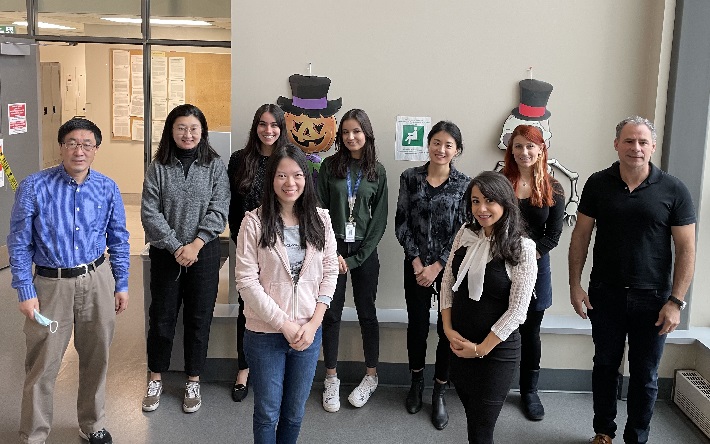
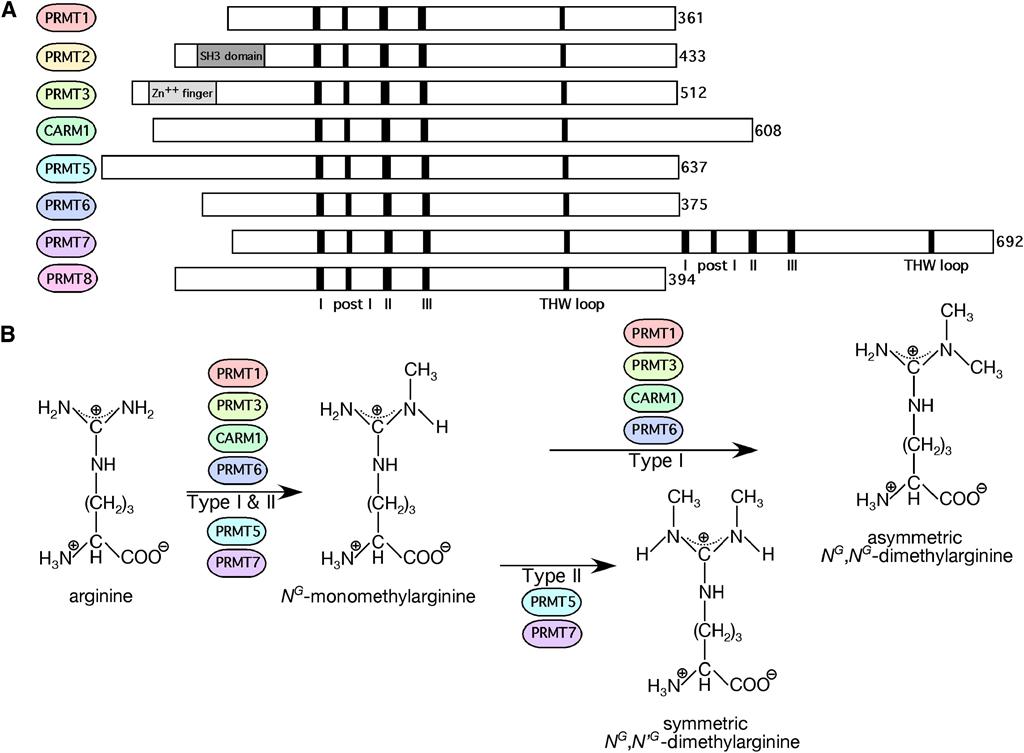
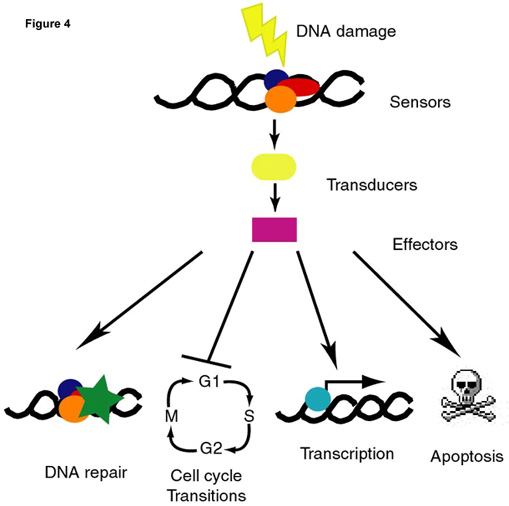 The stability of the genome is essential for the proper function and survival of all organisms. DNA damage is very frequent and appears to be a fundamental problem for life. DNA damage can trigger the development of cancer and accelerate aging. Most DNA damage is removed by DNA repair enzymes, but these repair processes are not completely efficient. DNA damage, if not repaired, causes errors during DNA synthesis leading to mutations that can give rise to cancer.
The stability of the genome is essential for the proper function and survival of all organisms. DNA damage is very frequent and appears to be a fundamental problem for life. DNA damage can trigger the development of cancer and accelerate aging. Most DNA damage is removed by DNA repair enzymes, but these repair processes are not completely efficient. DNA damage, if not repaired, causes errors during DNA synthesis leading to mutations that can give rise to cancer.